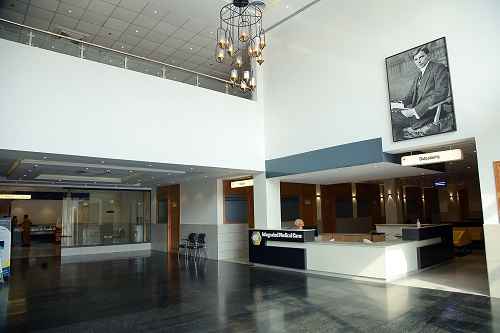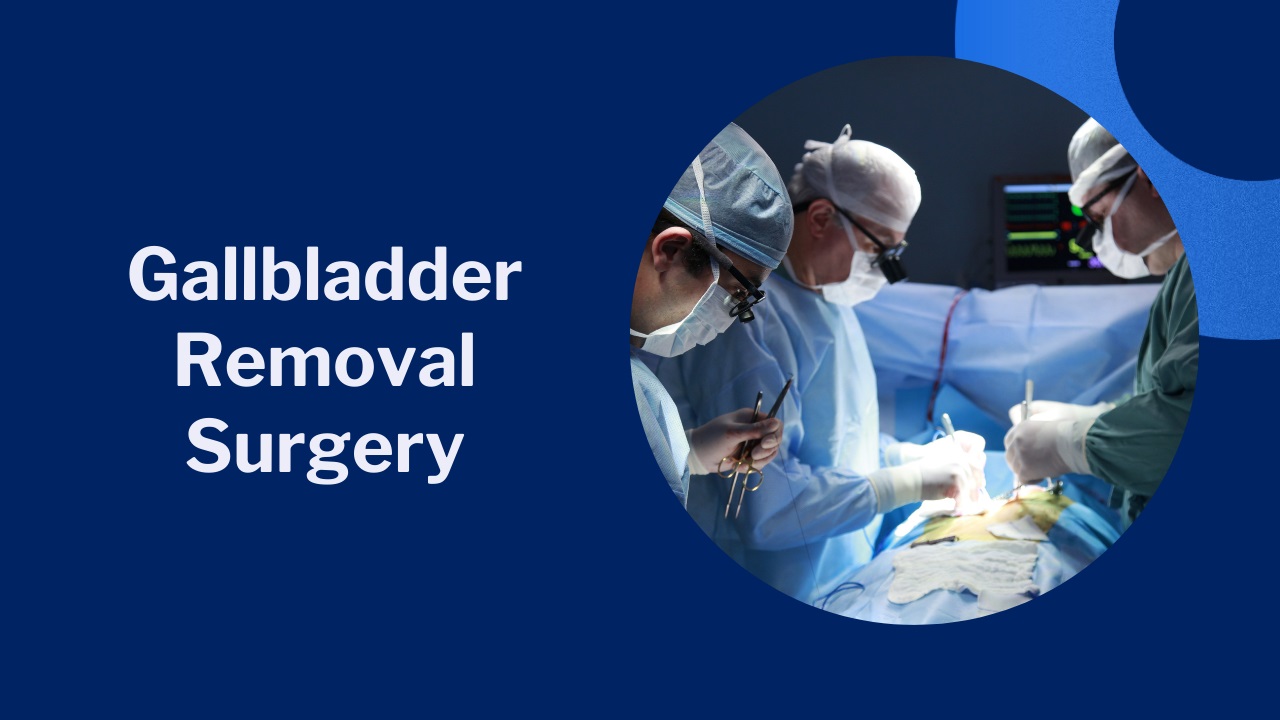- 11-Jul-24
The gallbladder is removed from the body by the surgeon after it has been gently detached from the liver and bile ducts. Bile from the liver enters the small intestine straight following gallbladder removal. After surgery to remove the gallbladder, recovery is usually not too long. After a laparoscopic cholecystectomy, most patients can return to their regular activities in a week or two; recovery following an open cholecystectomy may take a little longer.
It's crucial to adhere to the surgeon's post-operative recommendations, which include taking any recommended medicine, tending to the incision areas, and progressively returning to your regular activities. As with any surgical treatment, there are dangers associated with gallbladder removal surgery, including bleeding, infection, harm to surrounding organs, and anesthesia-related issues. Nonetheless, these hazards are typically minimal, and the advantages of the procedure frequently surpass them.
Symptoms of Gallbladder Removal:
Following a cholecystectomy, which removes the gallbladder, certain patients may develop specific symptoms or digestive abnormalities. While most people do not have serious problems following gallbladder removal, these symptoms can differ from person to person and include the following:
- Diarrhea: After having their gallbladder removed, some people may have loose stools or more frequent bowel motions. This happens because bile, which aids in the digestion of fats, is stored and concentrated in the gallbladder. In the absence of the gallbladder, bile enters the small intestine straight from the liver, which may cause alterations in bowel habits.
- Difficulty digesting fatty foods: In the absence of a gallbladder, the body could find it more difficult to process lipids. This can lead to pain, gas, or diarrhea, especially after eating a lot of fat-containing foods.
- Changes in bowel movements: There may be variations in the frequency or consistency of bowel movements for certain individuals. This can include constipation on occasion as well as more frequent or urgent bowel motions.
- Abdominal pain or discomfort: Despite the fact that most patients recover from gallbladder removal surgery without experiencing any severe pain or discomfort, some people may experience mild stomach pain or discomfort for a brief period of time. This is usually only temporary, and it gets better as your body adjusts.
Not everyone will have these symptoms, and many people can lead regular, healthy lives without having a gallbladder. This is important to remember. It is advised that you speak with a healthcare provider for additional assessment and direction if you are experiencing chronic symptoms following gallbladder removal surgery. In addition to offering tailored guidance, they may recommend medicines or dietary changes to address any symptoms you may be feeling.
Best Gastroenterologist in Lahore:
Integrated Medical Care Hospital (IMC Hospital) is one of the most prestigious institutions in Pakistan which is known for its performance and outstanding results regarding Gastroenterology (Stomach Specialist). Here you find one of the Best Gastroenterology (Stomach Diseases) Specialists in Lahore Pakistan. Visit today and book your appointment at Integrated Medical Care Hospital (IMC Hospital).
Prof. Dr. Ghias Un Nabi Tayyab:
MBBS, MRCP (UK), FRCP (Edin), MD (USA), AGAF (USA).
Specialties: Gastroenterology, Hepatology (Liver Diseases).
Area of focus: Gastroenterology, Hepatology (Liver Diseases), Advanced Endoscopy
Dr. Adnan Salim:
FCPS (Gastroenterology), MRCP (Glasgow), Fellowship in Advanced Digestive Endoscopy (SZFPGMI)
Specialties: Gastroenterology , Hepatology (Liver Diseases)
Area of focus: 1)Liver Disease: Viral Hepatitis, Autoimmune & Metabolic liver disease, Fatty Liver Disease & Metabolic Syndrome. 2)Gastrointestinal Disease: Gastroesophageal Reflux Disease, Irritable Bowel Syndrome, Acid Peptic Disease, Inflammatory Bowel Disease. 3)Procedures: ERCP, PEG placement, Upper GI Endoscopy, Colonoscopy. Endoscopic management of esophageal, gastric, duodenal, hepatic, gallbladder, biliary tree, pancreatic and large bowel tumors 4) Research: Gastroesophageal Reflux Disease, Liver disease, Portal Hypertension, Liver Transplantation.

 Map
Map










